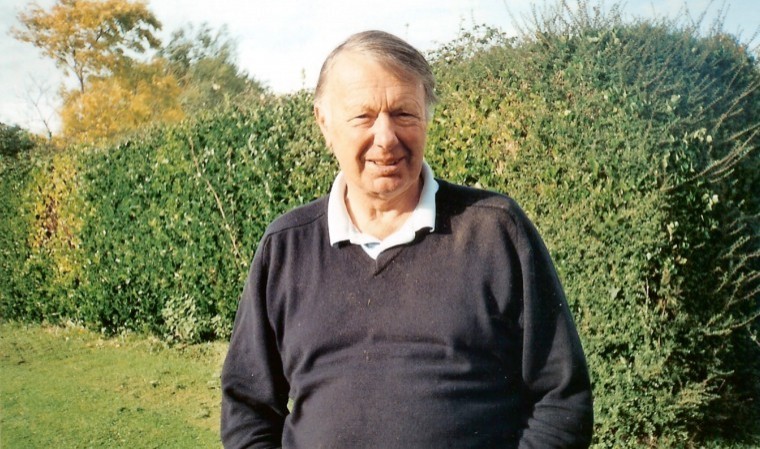It seems the country’s most self-promoted environmentalist, Chris Packham, co-founder of Wild Justice, has decided which corvids people may shoot. The result will probably astound every countryman and woman.
It appears he and his associates have come to the decision that jackdaws should not be shot, with which I imagine most of us concur. Astonishingly, though, because the jackdaw is to be spared, they go on to say the magpie and the jay, two of the three biggest avian killers of small garden birds as well as wild game birds (the third being the carrion crow) should also be included on the protected list…
What utter madness. Anyone with any real knowledge of nature, with an open mind and eyes to see with, will know full well the huge damage any one of these species can do to our smaller avian populations throughout daylight hours.
They all have their well-known hunting methods and one or more of any of them can, within half an hour, strip a small garden of all its eggs and fledglings.
Crows are generally a more silent sort; sitting, watching movements from early in the day before tearing fledglings, or even the whole nest, out in seconds. Magpies, at least around here, rise later and don’t start killing so early but cause absolute slaughter when they start, cackling to attract any mates in the neighbourhood, plus the watchful crows, to their killing party. When one hears that cackle, there are certain to be many more songbird deaths.
And then the jay comes along and quietly clears up with the same skill as the other two. It is nothing short of carnage.
So for Packham and his band to set themselves up as judge and jury on a subject about which they are either blind, ignorant or biased – or all three, will surely cause huge outrage, unless he’s ‘brought to heel’.
I don’t think there are many farmers and true countrymen around who would leave their gun in its sleeve when they see these events brewing, regardless of the totally ignorant ‘urban-based’ rules being promoted by these people. I certainly wouldn’t.
On our two old stock farms we are gradually emptying barns of all remaining straw and feed stocks, silage and hay. Had the early spring rains fallen as snow, I think demand would have been stronger, but when the drier days arrived in late March and warm sun woke (that’s not a word I like in its recently acquired usage, because although I don’t know exactly what it means, I’m sure I will firmly disagree with the folk to whom it applies) the grass, the rush for these feeds rapidly and unsurprisingly slackened.
In normal springs it would have been reassuring to see some leftover bales to reduce needs for next year, or for feeding animals through a drought, but now the only animals we appear to have around us are a couple of young fallow deer. They were in our garden day and night through the late spring, clipping all the reachable leaves on a couple of euonymus hedges as high as they could reach, removing early rose shoots and grazing the late show of snowdrops, quite unfazed by us watching them from inside the house.
Now they have moved on, probably found a better spot and, from my wife’s point of view, that’s a good thing. But it was interesting while it lasted – and it will save some hedge trimming this summer.
As I reported last month, the new vineyard is progressing rapidly. The first 50,000 German and French grafted vines are now in the store ready for planting in the next two weeks. The only concern seems to have been around transporting the planter across from Europe, although I think that will soon be resolved. I am also told that the vines for spring 2021 are already ordered and being grafted, which will bring planting by the end of May next year up to almost 100,000 vines.
I asked what varieties were ordered, not that it means a lot to me as I really favour water over wine, and the cows never took to it either! Apparently they are growing Chardonnay, Pinot Noir, Pinot Meunier, and Pinot Gris. Then I imagine that as the soil structure strengthens on the lower soils they may change varieties.
Vines are a unique crop because they don’t want high fertility as it creates vigorous top growth rather than grapes. I think they will have a lot of initial growth on this vineyard!
The long, flooded winter brought a new sight to our Brooklands on the home farm. The land was under water virtually from Christmas through until the start of April on the lowest ground, and when it finally subsided we were presented with what appeared to be snow-clad ditch banks.
Given that our rivers have not been bottomed for over 25 year, the water cannot get out to the sea and is pushed back up hill – and with it came this sludge. It transpired, following testing by Southern Water, that it was heavily polluted with sludge from a sewage plant somewhat downstream of us which, because of the silted waterway, backed up into the ditches.
It was probably too wet for the various inspectors to risk wet feet, so this muck has permeated hundreds of acres of low land and presumably killed most of the aquatic life in the ditches we farmers try so hard to conserve. The inspector who tested it said it was “mostly toilet paper”, giving it the snowy appearance as it dried, but most of us know that toilet paper is not the only thing being flushed down the drain; perhaps even coronavirus? I think we are due some answers.




